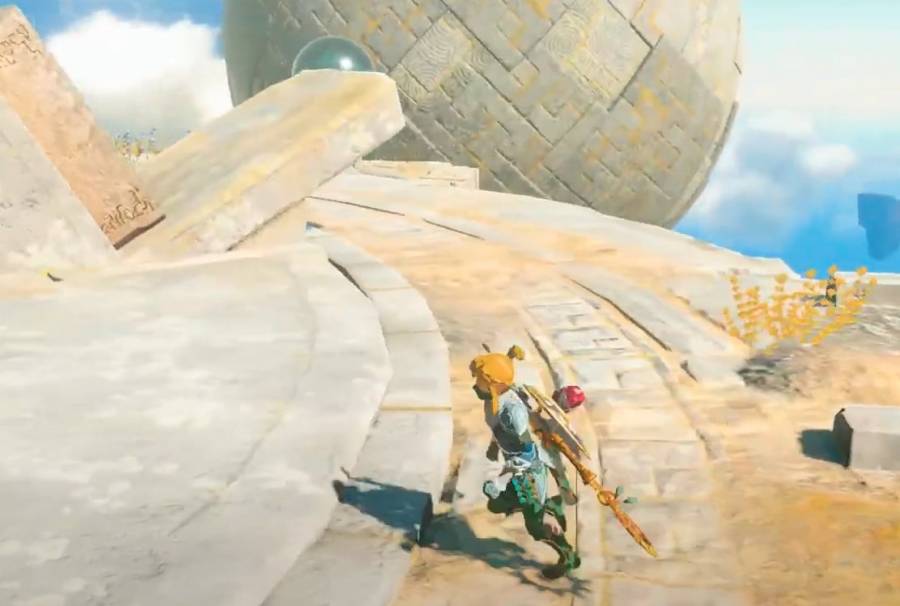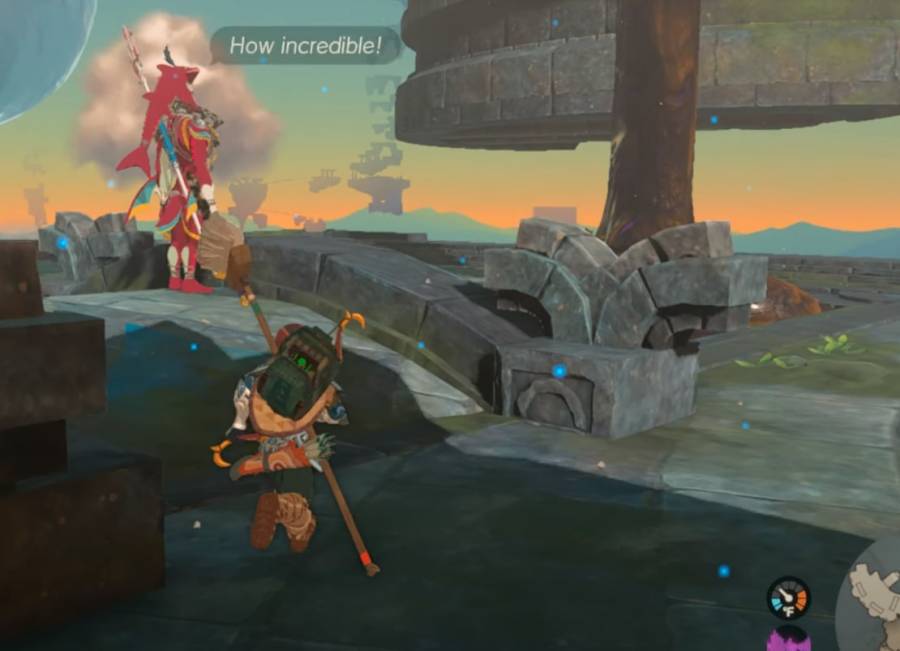Understanding the Zelda Narrative Landscape
The Legend of Zelda series has always been known for its engaging and intricate narratives. From the original Legend of Zelda on the NES to the latest installment, Tears of the Kingdom, the series has consistently delivered memorable stories set in the richly detailed world of Hyrule.
Historical Perspective
The narrative landscape of the Zelda series has evolved significantly since its inception. While the early games focused primarily on the hero’s journey of Link, later entries have expanded their narrative scope, exploring themes such as time travel, parallel worlds, and even the nature of destiny itself.
Emergence of Zelda Storytelling
Over time, storytelling in Zelda games has become increasingly complex and nuanced. This is evident in the way the games weave their narratives, often intertwining main quests with side stories, creating a web of interconnected narratives that enrich the overall story.

Themes and Motifs in Previous Installments
Certain themes and motifs recur throughout the Zelda series. These include the struggle between good and evil, the hero’s journey, and the cyclical nature of time. These themes add depth to the narratives and create a sense of continuity across the series.
Role-Playing Elements in Tears of the Kingdom
While the Zelda series isn’t traditionally categorized as role-playing games (RPGs), Tears of the Kingdom incorporates several elements commonly found in RPGs. This includes character development, decision-making, and a focus on narrative and world-building.
Exploration of Character Development
One of the key aspects of RPGs is character development. In Tears of the Kingdom, characters are given more depth and complexity than in previous Zelda games. This includes not only the protagonist, Link, but also supporting characters who have their own backstories and motivations.
Player Agency and Decision-Making
Another key feature of RPGs is player agency. In Tears of the Kingdom, players have the ability to make decisions that affect the course of the game’s narrative. This adds a layer of immersion and personal investment to the story.
Evolution of Non-Player Characters
Non-player characters (NPCs) in Tears of the Kingdom are more than just quest givers or vendors. They have their own lives, personalities, and stories, adding to the richness of the game’s world.
Questing Dynamics and Story Progression
Questing is a crucial part of the narrative structure in Tears of the Kingdom. The way quests are designed and integrated into the story plays a significant role in how the narrative unfolds.
Main Quest vs. Side Quests
The main quest in Tears of the Kingdom follows the traditional Zelda formula: Link must defeat the evil Ganon and save Hyrule. However, the game also features numerous side quests that offer additional stories and challenges. These side quests often provide deeper insights into the game’s world and characters.
Integration of Lore and Backstories
In Tears of the Kingdom, lore and backstories are often revealed through quests. This integration of narrative and gameplay enhances the storytelling experience, making the act of discovering the game’s lore an engaging part of the gameplay itself.
Balancing Linearity and Open-World Freedom
Tears of the Kingdom strikes a balance between linear story progression and open-world freedom. While the main quest provides a clear direction for the narrative, the open-world design allows players to explore at their own pace and uncover additional stories and lore.
Narrative Innovation: Tears of the Kingdom vs. Traditional Zelda Tropes
Tears of the Kingdom represents a significant departure from traditional Zelda tropes. It introduces new narrative elements and concepts that set it apart from previous entries in the series.
Deconstructing Hero’s Journey
In traditional Zelda games, the narrative follows the classic “hero’s journey” archetype. However, Tears of the Kingdom deconstructs this formula, offering a more nuanced exploration of heroism and destiny.
Subverting Prophecy and Destiny Tropes
While prophecy and destiny are common themes in the Zelda series, Tears of the Kingdom subverts these tropes. The game presents a narrative where destiny is not predetermined, and the future can be shaped by the player’s actions.
Influence of Tears of the Kingdom’s Unique Story Elements
The unique story elements introduced in Tears of the Kingdom have had a significant impact on the narrative structure of the game. They add depth and complexity to the narrative, creating a more engaging and immersive storytelling experience.
Interactivity and Storytelling in Gaming
Interactivity is a crucial aspect of storytelling in video games. In Tears of the Kingdom, player actions and decisions play a significant role in shaping the narrative.
Player-Driven Narrative Choices
In Tears of the Kingdom, players have the ability to make decisions that influence the course of the story. This player-driven narrative creates a sense of agency and immersion, as players feel that their actions have meaningful consequences within the game world.
Impact of Choices on Endings
The choices players make in Tears of the Kingdom can affect the game’s ending. This adds replayability to the game, as players may wish to play through the game multiple times to see the different outcomes.

Engaging the Player Emotionally
One of the strengths of interactive storytelling is its ability to engage players emotionally. By allowing players to influence the narrative, Tears of the Kingdom creates a personal connection between the player and the game’s characters and world.
Visual Storytelling: Beyond Dialogues and Cutscenes
While dialogues and cutscenes are important tools for storytelling, Tears of the Kingdom also utilizes visual storytelling techniques to convey narrative information.
Environmental Storytelling
Environmental storytelling involves using the game’s environment to convey narrative information. This can include everything from the design of buildings and landscapes to the placement of objects and NPCs.
Symbolism in Art and Design
Symbolism is another powerful tool for visual storytelling. In Tears of the Kingdom, various symbols are used to convey narrative themes and character motivations.
Non-Verbal Communication Techniques
Non-verbal communication is another aspect of visual storytelling. This includes character animations, facial expressions, and body language, all of which can convey narrative information without the need for dialogue or text.
The Role of Music and Sound in Storytelling
Music and sound play a crucial role in video game storytelling. In Tears of the Kingdom, they are used to enhance the narrative and create an immersive gaming experience.
Composing a Narrative Score
The musical score in Tears of the Kingdom is carefully composed to support the game’s narrative. Different themes and motifs are used to represent different characters, locations, and narrative events.
Emotional Resonance through Sound
Sound is also used to create emotional resonance. This includes not only the music but also sound effects and voice acting. These elements work together to evoke specific emotions and enhance the narrative impact of key moments in the game.
Creating Atmosphere and Tone
Music and sound also play a crucial role in establishing the atmosphere and tone of the game. They can create a sense of tension during combat, evoke a sense of wonder while exploring, or underscore the emotional weight of dramatic moments in the story.
Critical Reception to the Narrative Approach
Since its release, Tears of the Kingdom has received widespread acclaim for its narrative approach. Critics and players alike have praised the game’s storytelling, character development, and world-building.
Reviewers’ Perspectives
Many reviewers have highlighted the game’s narrative as one of its standout features. They have praised its complex characters, intricate plot, and the freedom it gives players to shape their own narrative.
Fan Community Discussions
The fan community has also been highly engaged with the game’s narrative. Online forums and social media platforms are filled with discussions, theories, and analyses of the game’s story and characters.
Addressing Criticisms and Praise
While the reception to Tears of the Kingdom’s narrative approach has been largely positive, there have been some criticisms. These primarily relate to the game’s balance between open-world exploration and narrative progression, as well as its handling of certain plot elements.
Comparative Analysis with Other RPGs
While Tears of the Kingdom is not a traditional RPG, it shares many similarities with games in this genre. A comparative analysis can provide valuable insights into the game’s narrative structure and its place within the broader RPG landscape.
Tears of the Kingdom in the RPG Landscape
Despite not being a traditional RPG, Tears of the Kingdom incorporates many elements commonly found in RPGs. This includes character development, player agency, and a focus on narrative and world-building.
Lessons from Other Successful RPGs
Tears of the Kingdom can be compared to other successful RPGs to identify shared strengths and potential areas for improvement. This can include everything from narrative structure and character development to world-building and quest design.

Innovations Contributing to Genre Evolution
While drawing from established RPG conventions, Tears of the Kingdom also introduces several innovative features. These innovations, particularly in terms of narrative structure and player agency, contribute to the evolution of the RPG genre.
Implications for the Future of Zelda Narratives
The narrative approach taken in Tears of the Kingdom represents a significant departure from traditional Zelda games. This raises interesting questions about the future direction of the Zelda series and its potential impact on the broader gaming industry.
Impact on Gaming Industry Trends
The innovative narrative structure of Tears of the Kingdom has the potential to influence trends in the gaming industry. Its successful integration of RPG elements into a traditionally action-adventure series could inspire other developers to experiment with genre conventions.
Influence on Other Franchises
The success of Tears of the Kingdom could also influence other franchises, particularly those in the action-adventure genre. By demonstrating that complex narratives and RPG elements can enhance the player experience, it could encourage other developers to take similar risks in their own games.
Balancing Tradition and Innovation
One of the key challenges for future Zelda narratives will be balancing tradition and innovation. While it’s important to preserve the elements that fans love about the series, it’s also crucial to continue pushing boundaries and exploring new narrative possibilities.
Conclusion
The narrative approach in Tears of the Kingdom represents a significant evolution for the Zelda series. By incorporating elements traditionally associated with RPGs, it creates a more complex and engaging narrative experience. However, it also raises interesting questions about the future direction of the series and its potential impact on the gaming industry. As developers continue to explore new ways to tell stories in video games, the lessons from Tears of the Kingdom will undoubtedly provide valuable insights.
Ultimately, the success of Tears of the Kingdom demonstrates the power of storytelling in video games. It shows that a compelling narrative can enhance the player experience, creating a deeper emotional connection to the game’s world and characters. Whether future Zelda games will continue down this path remains to be seen, but one thing is certain: the narrative innovations introduced in Tears of the Kingdom have left a lasting impact on the series and its fans.
